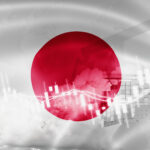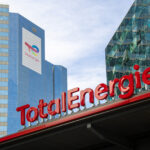The governments of Japan and India announced on September 9, 2013, a joint buyer’s group agreement to increase the importation of liquefied natural gas (LNG) in an attempt to offset their rising energy prices.
According to Mari Iwata’s report in The Wall Street Journal, the countries plan to ask fellow importers, such as South Korea and Singapore, to join the planned multilateral joint LNG study group at the 2nd LNG Producer-Consumer Conference on September 10, 2013. The conference, located in Tokyo, Japan, will include senior officials from producer countries including Australia, Indonesia, Qatar and Nigeria. Importing nations expect to improve their bargaining power with exporters if more countries join their buyer’s group.
LNG prices have soared in Asia this summer, and utilities in South Korea and Japan increased purchases due to unusually high temperatures. Asian LNG prices “are roughly 30% higher than North American gas prices, even after factoring in the costs of liquefaction and transportation,” said Hiromichi Moriyama, director of the Japanese industry ministry’s international energy strategy department.
The Federal Energy Regulatory Commission (FERC) lists the United States costs at $2.97 per million British thermal units (Btus) in its August 2013 report. By comparison, India pays $13.95 per million Btus and Japan, the world’s top LNG importer, pays $15.75 per million Btus.
Japan’s need for LNG is compounded by the nuclear plant crises stemming from the 2011 tsunami. The extensive contamination from the Fukushima plant has forced the shutdown of 50 reactors, severely limiting Japan’s energy options. Japan’s Nuclear Regulation Authority is reviewing applications from utilities to operate about a dozen of the stalled plants. Oil and Gas 360® featured an article on the drawbacks of nuclear energy in an August 29, 2013 posting.
The sellers certainly hold the power in Southeast Asia’s energy market. According to CIA’s World Fact Book, Japan is the world’s 6th largest LNG consumer, and India is number 13. India’s LNG imports are expected to rise 19% this year, according to industry estimates. China, South Korea, Taiwan and Singapore are also major consumers, and Asia-Pacific countries are expected to account for 64% of the world’s LNG demand by 2020, according to an RBC Capital Markets report.
The world’s top LNG producer, Qatar, accounts for roughly 25% of the world’s reserves and is the primary contributor to India. The LNG-rich country also was Japan’s main source before Australia emerged as an exporting force in 2011. Australian LNG exports totaled $11 billion in 2010-11 but are expected to reach $30 billion in 2016-17. Japan currently buys 70% of Australia’s LNG exports.
United States as a LNG Exporter
America’s participation in exporting LNG, on the other hand, is still in its infancy. If the United States does not share a free trade agreement with a certain country, exporting companies must first be approved to conduct business with that particular country. The Department of Energy must first approve the company’s request to export, and then the Energy Regulatory Commission (ERC) must issue a construction permit. To date, just 16 sites in North America have proposed to the FERC regarding exportation, and only three have received approval to export to countries without a free trade agreement. The only Southeast Asian countries sharing a free trade agreement with the United States are South Korea and Singapore.
Companies with exporting permits are Cheniere Energy (ticker: LNG), Freeport LNG Expansion LP, and Lake Charles Exports, a jointly owned subsidiary of BG Group Plc (ticker: BG) and Southern Union Co. Of the three, only one, Cheniere Energy’s Sabine Pass in Louisiana, has a construction permit.
Freeport signed a 20-year Liquefaction Tolling Agreement with Toshiba (ticker: TOSBF) on September 9, 2013, for a base quantity of 2.2 million tons (26.4 billion Btus) per year. Freeport is waiting on a construction permit from the ERC before they can proceed with the export agreement. Click here for the full release.
Analyst Commentary
Gavin Thompson, Head of Asia Pacific Gas & Power Analysis for Wood Mackenzie, said: “Both governments recognize their influence on the global LNG market and are actively pursuing initiatives aimed at reducing overall LNG supply costs through increasing competition between global LNG suppliers. However, a lack of clarity around the timing and extent of market liberalization as well as ongoing uncertainty around nuclear power in their domestic markets could have the opposite effect.”
Thompson added: “Power market liberalization could erode the regional monopolies of traditional power utilities and enable other players such as gas utilities, industrials and downstream companies to enter the market. Uncertainty about the future regulatory and competitive environment could result in all players delaying firm LNG procurement decisions.”
[sam_ad id=”32″ codes=”true”]
Important disclosures: The information provided herein is believed to be reliable; however, EnerCom, Inc. makes no representation or warranty as to its completeness or accuracy. EnerCom’s conclusions are based upon information gathered from sources deemed to be reliable. This note is not intended as an offer or solicitation for the purchase or sale of any security or financial instrument of any company mentioned in this note. This note was prepared for general circulation and does not provide investment recommendations specific to individual investors. All readers of the note must make their own investment decisions based upon their specific investment objectives and financial situation utilizing their own financial advisors as they deem necessary. Investors should consider a company’s entire financial and operational structure in making any investment decisions. Past performance of any company discussed in this note should not be taken as an indication or guarantee of future results. EnerCom is a multi-disciplined management consulting services firm that regularly intends to seek business, or currently may be undertaking business, with companies covered on Oil & Gas 360®, and thereby seeks to receive compensation from these companies for its services. In addition, EnerCom, or its principals or employees, may have an economic interest in any of these companies. As a result, readers of EnerCom’s Oil & Gas 360® should be aware that the firm may have a conflict of interest that could affect the objectivity of this note. The company or companies covered in this note did not review the note prior to publication. EnerCom, or its principals or employees, may have an economic interest in any of the companies covered in this report or on Oil & Gas 360®. As a result, readers of EnerCom’s reports or Oil & Gas 360® should be aware that the firm may have a conflict of interest that could affect the objectivity of this report. As of the report date, neither EnerCom nor any of its employees has a financial interest in any equity or debt of any company mentioned in this report.







